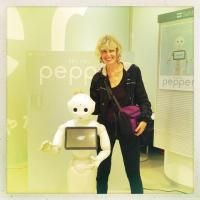Automated graves: The precarity and prosthetics of caring for the dead in Japan
Date
2021-07-01
Authors
Journal Title
Journal ISSN
Volume Title
Repository Usage Stats
views
downloads
Citation Stats
Abstract
Once dependent on family to bury and memorialize the dead, caring for the deceased has become increasingly precarious in the wake of a decreasing and aging population, a trend towards single households, and downsizing of social relationality—including the temple parishioner system once key in mortuary rituals. In the new “ending” marketplace emerging today to help Japanese manage this precarity, automated graves offer customers a convenient burial spot in an urban ossuary where ashes, interred in a deposit box, are automatically transferred to a grave upon visitation. Based on ethnographic fieldwork, the article examines the just-in-time delivery system at work in automated graves, arguing that the mechanism serves as a social prosthesis, propping up the allure of social caring for the dead, even for those whose ashes are never visited by human relations. With over 30 such institutions now operating in Japan, automated graves are a sign of changing sociality between the living and the dead.
Type
Department
Description
Provenance
Subjects
Citation
Permalink
Published Version (Please cite this version)
Publication Info
Allison, A (2021). Automated graves: The precarity and prosthetics of caring for the dead in Japan. International Journal of Cultural Studies, 24(4). pp. 622–636. 10.1177/1367877920950326 Retrieved from https://hdl.handle.net/10161/25975.
This is constructed from limited available data and may be imprecise. To cite this article, please review & use the official citation provided by the journal.
Collections
Scholars@Duke

Anne Allison
Anne Allison is a cultural anthropologist who researches the intersection between political economy, everyday life, and the imagination in the context of late capitalist, post-industrial Japan. Her work spans the subjects of sexuality, pornography, and maternal labor to the globalization of Japanese youth products, the precarity of irregular workers, and new death practices in "post-familial" Japan. She is the author of Nightwork: Sexuality, Pleasure, and Corporate Masculinity in a Tokyo Hostess Club (University of Chicago Press, 1994)—an ethnography of the Japanese corporate practice of entertaining employees and customers in the sexualized atmosphere of hostess clubs; Permitted and Prohibited Desires: Mothers, Comics, and Censorship in Japan (University of California Press 2000)—a collection of essays analyzing the complex desires linking motherhood, pornographic comics, and popular culture; Millennial Monsters: Japanese Toys and the Global Imagination (University of California Press, 2006)—a study of the intermeshing of fantasy, capitalism, and cultural politics in the rise of Japan's brand of "cool" youth-goods on the global marketplace, and Precarious Japan (Duke University Press, 2013) about the socio-economic shifts in post-corporatist Japan towards precaritization of work, sociality, and everyday security. Her most recent book, Being Dead Otherwise (Duke University Press, 2023) looks at changes in mortuary practice when the family grave--once so conventional in Japan--is becoming outdated, even abandoned. Examining new trends for where dead wind up "otherwise (such as automated columbaria) in Japan today, the book considers historical, socio-economic, and existential factors involved in the place (or lack thereof) of a final resting place for those with (or without) others to tend to them.
Unless otherwise indicated, scholarly articles published by Duke faculty members are made available here with a CC-BY-NC (Creative Commons Attribution Non-Commercial) license, as enabled by the Duke Open Access Policy. If you wish to use the materials in ways not already permitted under CC-BY-NC, please consult the copyright owner. Other materials are made available here through the author’s grant of a non-exclusive license to make their work openly accessible.
